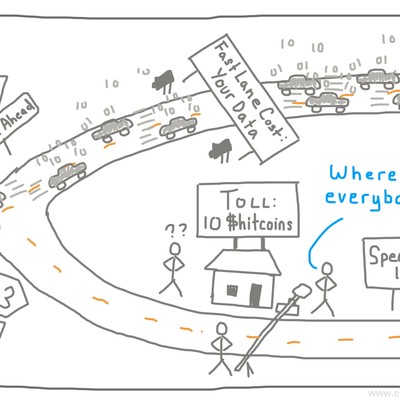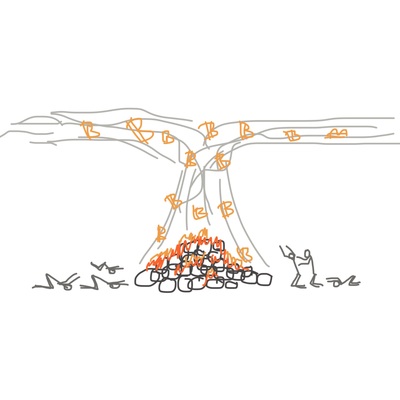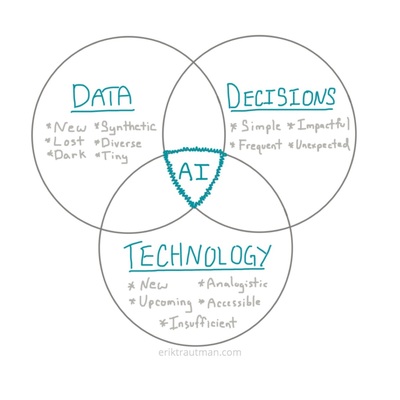Fat-Free Education
The education system is pretty messed up. I don't think many people will argue with that. Tuition at my alma mater -- Penn -- rose this year to $39,088, not including the $12,368 for room and board (1). I'll admit that my eyes popped when I looked that up. Compare that with another stat, that only 60% of students were able to find full-time employment after graduating (2), which is *above average*. How the holy hell is this a legitimate situation? Of course, the value of a well-rounded liberal arts education goes well beyond the boundaries of such a narrow idea as getting paid enough to live and eat and...
A full on, 4-year liberal arts education is like a big fatty steak. It costs a lot, it tastes great, and it's of questionable nutritional value. And not everyone should be eating it. Why are we still telling people to pay over $200k for something with only a 60% probability of resulting in a job? Why do you so often hear "I only learned 10% of what I used on the job in school"? Some people will always eat steak but for the rest, we need a fat free education.
I'm not positive how that model looks but I know it is a lot different from our current college system and a lot different from the current panacea of awful for-profit alternatives (which I've railed against before). The growth of the MOOCs has shifted some of the focus but they are infants of the educational space and are at best a patchwork quilt of bandaid solutions to specific knowledge gaps.
So where does the market tell us we need more knowledge workers? STEM and healthcare. The BLS list of top earning professions is littered with engineering and healthcare (4). The top growing occupations with an median annual wage in the ~$60k and above range are healthcare, business, engineering, and legal related (5).
Computer-related professions account for over a million new jobs in the next ten years. More importantly, that skill set can be taught to a wide range of people quickly and efficiently. That model has been proven by the coding bootcamps who take intelligent people from all walks of life and make them into developers in a few months for at most the price of a single college semester (and at best only contingent on future employment (6)). That's one very narrow application of this fat-free philosophy, but where else can and should this idea be applied?
The software/development field is clearly ripe for a high intensity learning process focused on extreme employability. What about the rest of healthcare, business, engineering, and legal fields? At the coding school startup where I work, most of our applicants already went through college and realized how little it helped them. What if we were able to apply a similar mindset to replace colleges altogether? Trim the fat from education and make it directly applicable to life. Think of what we could do in just a year or two and for a fraction of the cost?
(1) http://www.upenn.edu/pennnews/news/penn-announces-2012-13-financial-aid-budget-tuition
(2) http://www.thedp.com/article/2011/05/penn_graduates_fare_better_than_most_in_job_market
(3) http://logos.cs.uic.edu/recruit/csstatistics.htm
(4) http://www.bls.gov/oes/current/oes_nat.htm#00-0000
(5) http://www.bls.gov/emp/
(6) http://www.appacademy.io






